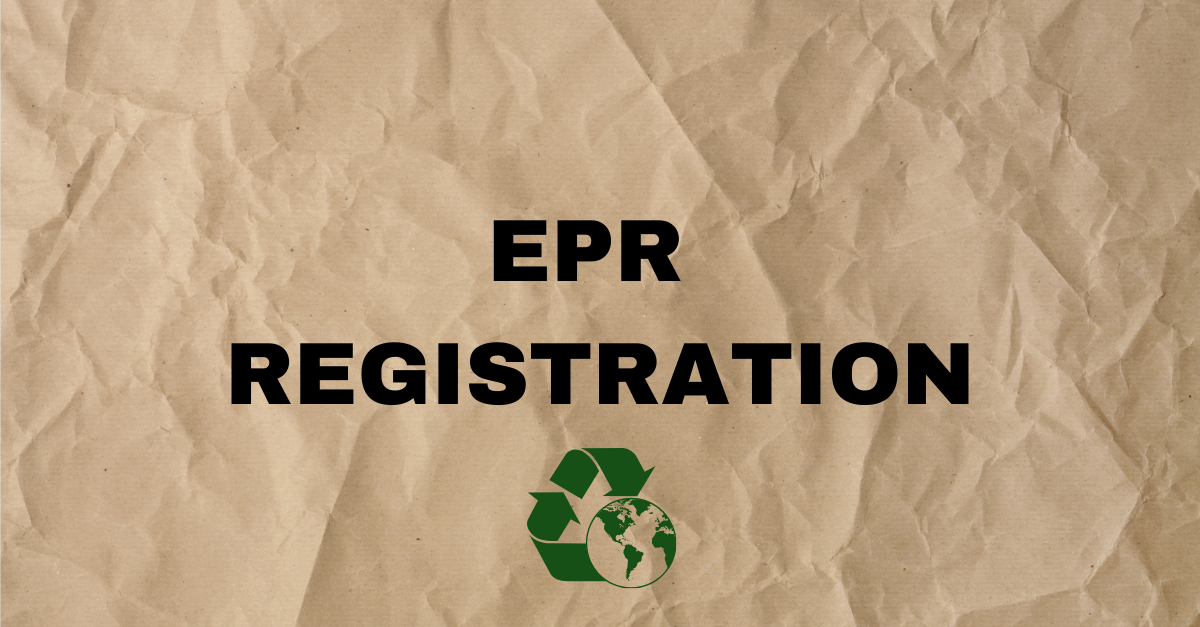
Introduction
Extended Producer Responsibility (EPR) is a critical waste management approach in India, specifically for electronic waste (E-waste). The Central Pollution Control Board (CPCB) under the Ministry of Environment, Forest and Climate Change issues EPR authorization. This authorization mandates manufacturers and importers to take responsibility for the proper disposal and recycling of their products' waste. Through EPR, India aims to promote sustainable waste management practices and reduce the environmental impact of E-waste, ensuring a cleaner and healthier future for the country.
Categories of EPR
EPR for Electronic Products
EPR for Plastic Packaging
EPR Authorisation for Plastic and E-Waste Management
- EPR is indeed an approach that holds manufacturers, importers, producers, and brand owners accountable for managing the waste generated from their products, including plastics and electronic waste.
- The EPR Authorization is a certification granted by the Central Pollution Control Board (CPCB) under the Ministry of Environment, Forest and Climate Change of the Government of India. It authorizes and assigns the responsibility of environmentally sound disposal or recycling of plastic and e-waste to the EPR holder.
- As per the Waste Management Rules in India, it is mandatory for all manufacturers and importers of e-waste to obtain the EPR certification. This applies to both Indian and foreign manufacturers or importers of electrical and electronic equipment falling under the EPR Authorization.
- By implementing the EPR system, the Indian government aims to promote sustainable waste management practices and encourage the recycling and responsible disposal of plastic and e-waste, reducing their impact on the environment and human health.
Products Covered Under EPR Certification
Mandatory Products
Voluntary Products
New Product Guidelines
Benefits of EPR Registration
- EPR for plastic waste reduces pollution
- Ensures eco-friendly waste disposal.
- Follows pollution control rules.
- Implies responsible e-waste management.
- Promotes recycling and proper disposal.
- Applies to EPR management organizations
- Facilitates foreign electronic product sales.
EPR for Electronic Products
EPR (Extended Producer Responsibility) for electronic products entails manufacturers or importers taking responsibility for financing and managing the collection, reuse, recycling, or disposal of their products at the end of their life. This approach ensures that electronic products are managed in an environmentally sustainable manner, reducing their impact on the environment and human health. EPR programs can vary by country and product category, but they typically require producers to bear the costs of managing their products at the end of their life. This incentive encourages producers to design more sustainable products that are easier to manage and recycle. EPR is a crucial policy tool that shifts the burden of electronic waste management from taxpayers and consumers to the producers, who are considered the most responsible for the environmental impact of their products. This fosters a more sustainable approach to electronic waste management and promotes innovation in eco-friendly products.EPR for Batteries
EPR (Extended Producer Responsibility) for batteries is legally mandated in India under the E-waste (Management) Rules, 2016. These rules apply to all types of batteries, including lead-acid, nickel-cadmium, and lithium-ion batteries. Producers are required to take responsibility for managing their products at the end of their life cycle.To comply with the regulations, battery producers must obtain authorization from the Central Pollution Control Board (CPCB) or the State Pollution Control Board (SPCB) for import or manufacturing purposes. They are also obligated to establish collection systems for used batteries, either individually or in collaboration with authorized recyclers, and ensure a specific percentage of used batteries are collected and recycled each year.
To monitor and enforce compliance, producers must submit half-yearly reports to the CPCB or SPCB, containing details about the quantity of batteries imported or manufactured, the amount of used batteries collected and recycled, and other relevant data. Non-compliance may result in penalties and fines. These regulations represent a significant step in promoting environmentally friendly management of batteries in India. By holding producers accountable for the end-of-life management of their products, EPR for batteries encourages more sustainable production and consumption practices while reducing the environmental impact of battery waste.
EPR for Plastic Packaging
EPR (Extended Producer Responsibility) for plastic packaging was introduced through the Plastic Waste Management Rules, 2016. Under this regime, Producers, Importers, and Brand-owners are held responsible for managing their plastic packaging waste, ensuring proper processing through recycling, re-use, or end-of-life disposal methods. These entities are accountable for the entire lifecycle of their plastic products, from production to disposal, and must take measures to minimize their environmental impact. The implementation of EPR aims to promote sustainable practices in the plastic industry and reduce plastic waste that contributes to pollution and landfill. By embracing EPR, businesses can adopt more sustainable operations and contribute to a circular economy.Conclusion
The E-Waste (Management) Rules 2022, issued by the Ministry of Environment, Forests, and Climate Change on November 2, 2022, are scheduled to come into effect on April 1, 2023. According to these regulations, all manufacturers, producers, refurbishers, and recyclers are mandated to register on the designated portal and manage the e-waste generated during the manufacturing, refurbishing, or disposal of any electrical and electronic equipment, ensuring its proper recycling or disposal. Entities are required to register on the portal under the relevant category, such as manufacturer, producer, refurbisher, or recycler. If an entity falls into multiple categories, separate registration under each category is obligatory. Operating without registration is deemed unlawful.
Our team provides comprehensive assistance to EPR Authorization applicants throughout the registration process, from document preparation to license issuance. We ensure proper documentation and information flow during the certification process, including diligent follow-ups. For further details, please reach out to our team of experts.

